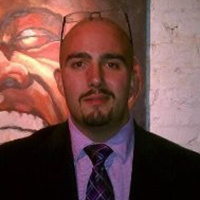 Louisiana Misdemeanor Lawyer List
Louisiana Misdemeanor Lawyer List
Sponsored Law Firm
-
 x
x

Click For More Info:
-
Babcock Trial Lawyers
10101 Siegen Ln #3-C Baton Rouge, LA 70810» view mapCriminal Defense We Want Your Injury Claim PAID NOW!
At Babcock Trial Lawyers, we work for our clients, maintaining our reputation of excellence as criminal defense & personal injury lawyers in Baton Rouge.
225-500-5000
Sponsored Lawyers
1-2 of 2 matches
Misdemeanor
Criminal Court is a place where someone's life can be irrevocably changed for the worse. I have born witness to incredible injustice being done to innocent people. I have also seen a person sacrificed and thrown away by the system without being given any chance at redemption. Seeing these stories play out is what drives me as a defense attorney, to protect people from being crushed by the system.
(more)


 Stephen Babcock Baton Rouge, LA
Stephen Babcock Baton Rouge, LA Practice AreasExpertise
Practice AreasExpertise


